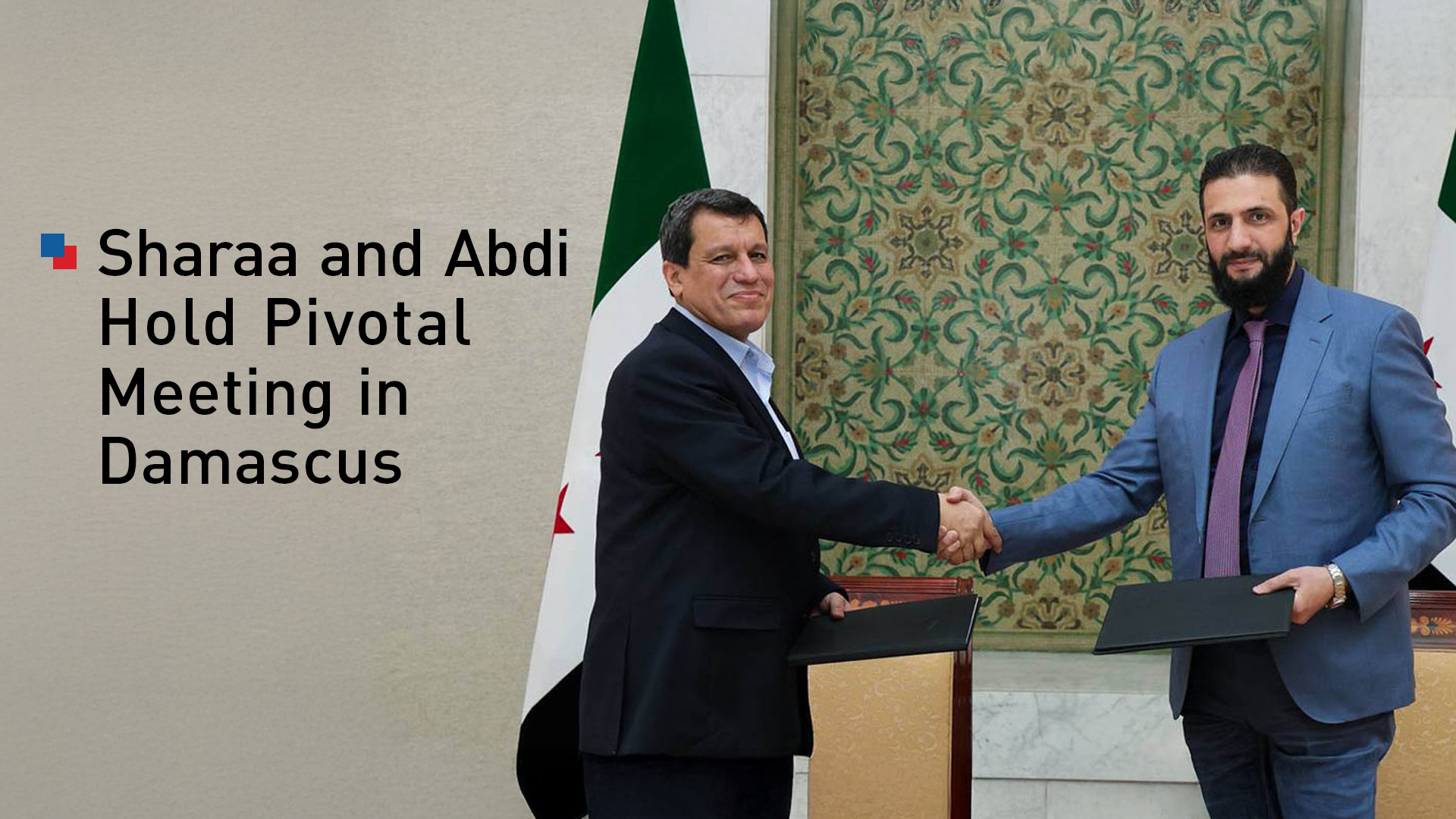Syrian President, Kurdish Leader Meet Amid Fragile Aleppo Truce
The talks come after deadly overnight clashes in Kurdish-majority neighborhoods of Aleppo that prompted both sides to agree to a ceasefire.

ERBIL (Kurdistan24) — Syrian President Ahmed al-Sharaa held talks Tuesday in Damascus with Mazloum Abdi, Commander-in-Chief of the Syrian Democratic Forces (SDF), in a meeting attended by U.S. officials, a government source told AFP.
The talks come after deadly overnight clashes in Kurdish-majority neighborhoods of Aleppo that prompted both sides to agree to a ceasefire.
It marked the first encounter since July between Sharaa and Abdi, whose U.S.-backed forces control much of Syria’s north and northeast.
Their meeting comes amid stalled progress on the implementation of the March 10 Damascus-SDF Agreement — a landmark deal designed to integrate Kurdish-led institutions into Syrian state structures while ensuring recognition of Kurdish rights and representation.
A diplomatic source informed AFP that the meeting included U.S. Special Envoy for Syria Tom Barrack and Admiral Brad Cooper, Commander of U.S. Central Command (CENTCOM).
Washington’s participation underscores its renewed efforts to stabilize post-Assad Syria and prevent renewed hostilities between government and Kurdish forces, both seen as critical to maintaining security and countering extremist resurgence.
State media reported that the Syrian government and the SDF agreed Tuesday to a ceasefire in Aleppo after days of escalating violence. According to Syrian state television, at least one member of Syria’s domestic security forces and one civilian were killed Monday during bombardments attributed to Kurdish forces.
Dozens of families fled the Sheikh Maqsoud and Ashrafieh districts — Kurdish-majority neighborhoods in Aleppo — as heavy machine-gun and mortar fire rocked the area.
Aleppo’s governor, Azzam al-Gharib, urged residents to remain indoors and avoid areas of active clashes, while the state news agency SANA said several wounded civilians had been transferred to nearby hospitals.
The UK-based Syrian Observatory for Human Rights (SOHR) reported that Syrian government forces deployed explosive drones, cut communications, and reinforced army positions around the two neighborhoods.
Kurdish officials, however, denied targeting government forces, accusing pro-Damascus factions of attempting a siege using tanks.
Aleppo, once Syria’s economic hub, remains a focal point of the country’s fragmented post-war landscape. Since the fall of Bashar al-Assad’s regime in December 2024, the city has been largely under Damascus-aligned Islamist authorities, while Kurdish-led units have retained control of pockets like Sheikh Maqsoud and Ashrafieh.
The result has been a tense coexistence marked by recurring clashes and shifting alliances.
The high-level Damascus meeting — involving both Syrian and U.S. officials — is seen as a test of whether fragile understandings can evolve into sustained political cooperation. The outcome could shape not only Aleppo’s security but also the broader trajectory of Kurdish-state relations in post-conflict Syria.
The United States has maintained a cautious but active role in post-conflict Syria, focusing on preventing the resurgence of ISIS, supporting Kurdish partners, and encouraging inclusive governance.
Washington’s engagement in the Damascus talks reflects a broader strategy to foster dialogue between rival factions, preserve stability in northern Syria, and gradually transition from military involvement to diplomatic facilitation.